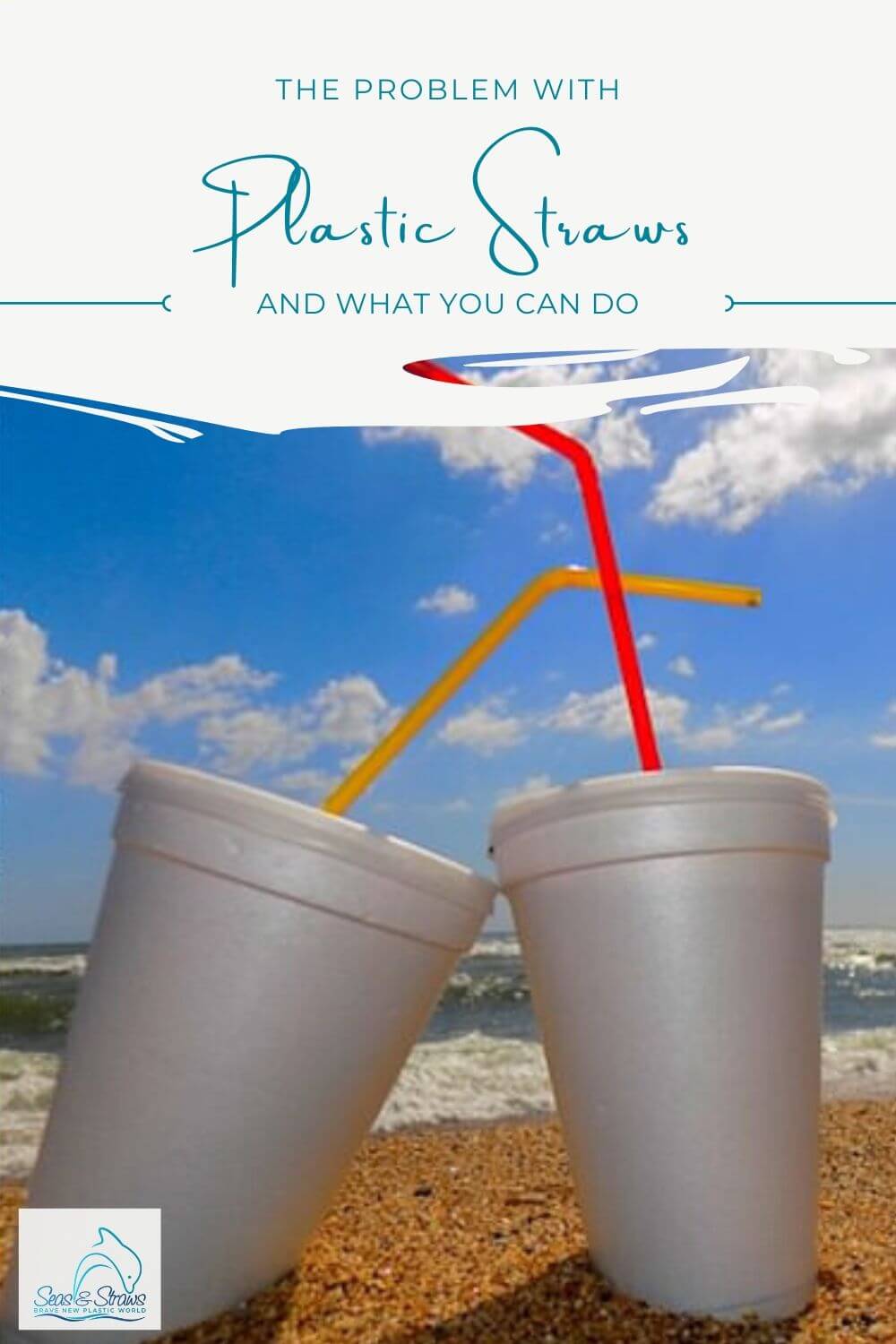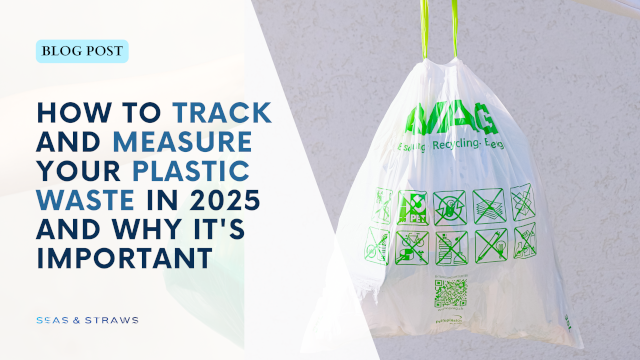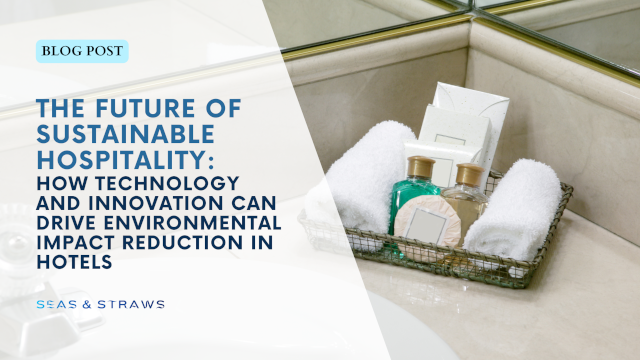- Home
- The Problem with Plastic
- Reduce Plastic Consumption
URGENT ACTION REQUIRED - WE MUST REDUCE PLASTIC CONSUMPTION NOW BEFORE IT'S TOO LATE (PART 2/2)
In our previous post, Urgent Action Required - We Must Reduce Plastic Consumption Now (part 1/2), we delved into the world of plastics, examining their various types, common uses, and the devastating environmental impact they pose. Now, we'll look closer at the many benefits of reducing plastic consumption and how it can positively impact the environment, people, and businesses.
The impact of reducing plastic consumption on THE PEOPLE
1. Healthier Living
It is a well-known fact that most plastics as well as microplastics contain chemicals that can leach into food, water, and the environment, potentially causing serious health problems. These chemicals are known as endocrine-disrupting chemicals (EDCs), which can interfere with the hormone system and lead to developmental, reproductive, and neurological disorders.
To avoid these health hazards from plastics and promote a healthier living environment for ourselves and our families, we should switch to alternatives like glass, metal, or reusable materials, free of any harmful chemicals.
2. Cost Savings
Single-use plastics may seem cheap and convenient when purchased individually, but these purchases can add up and significantly strain our wallets over time. However, when we opt for reusable items, we can save money in the long run and encourage a more sustainable and budget-friendly lifestyle.
For instance, investing in a quality, reusable water bottle can help you save hundreds of dollars in the long run. Think about it - if you drink four bottles per day at an average cost of $2 per bottle, you would be spending almost $2,920 in just one year! With a reusable bottle, even if you needed to buy a new one within a year, you would only be spending $20 per year at most. This means that you can save a whopping $2,900!
 A reusable water bottle saves hundreds of plastic bottles from (potentially) going to landfill.
A reusable water bottle saves hundreds of plastic bottles from (potentially) going to landfill.3. Empowerment Through Awareness
When we take steps to reduce our plastic consumption, we become an integral part of a broader global movement that aims to tackle the plastic pollution crisis. This awareness and sense of empowerment lead to a feeling of responsibility and an opportunity to influence change at a much broader level.
4. Inspiring Future Generations
When we lead by example and take an active role in reducing plastic waste, we inspire our children and future generations to adopt environmentally responsible habits. We educate them on the significance of our eco-conscious choices and instill a sense of responsibility towards the environment from an early age.
 We can take an active role in reducing our waste and inspiring future generations.
We can take an active role in reducing our waste and inspiring future generations.THE IMPACT OF REDUCING PLASTIC CONSUMPTION ON THE ENVIRONMENT
1. Marine Life Protection
It is estimated that 8 million tons of plastic waste find their way into our oceans each year, creating a severe threat to marine life as they can ingest or become entangled in the debris. When we reduce our plastic usage, we can significantly decrease the amount of plastic waste that enters marine habitats, preserving their delicate marine ecosystem and food chain.
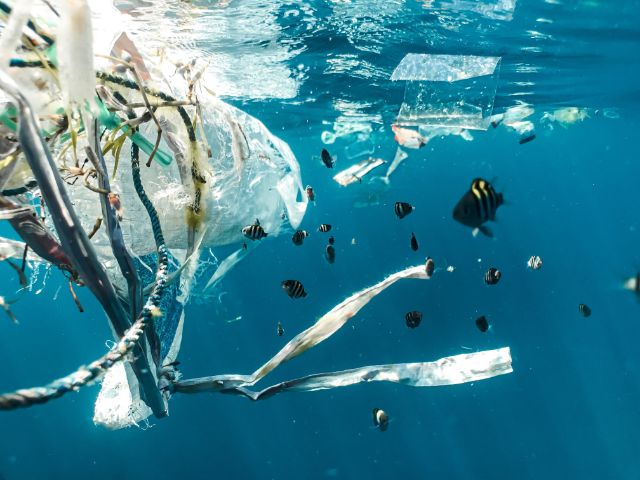 Marine debris is the greatest threat to marine life, killing more than 100,000 marine creatures every year.
Marine debris is the greatest threat to marine life, killing more than 100,000 marine creatures every year.2. Reduced Pollution and Litter
The excessive use of plastic products has led to a significant increase in waste generation, which in turn has caused clutter in our homes and communities. When we adopt sustainable alternatives and reduce our dependence on plastic, we minimize waste generation and improve the quality of our surroundings.
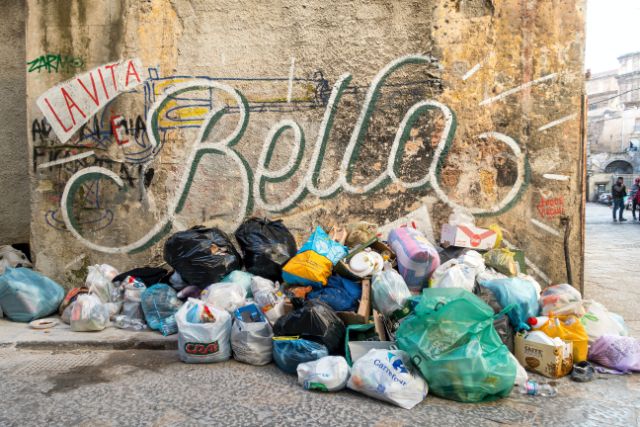 Our dependence on plastic is clogging our communities and cities.
Our dependence on plastic is clogging our communities and cities.3. Conservation of Natural Resources
Plastic production is among the largest consumers of fossil fuels and other valuable natural resources. Manufacturing plastic products requires a significant amount of energy, primarily derived from non-renewable fossil fuels. We can decrease the demand for these resources by reducing plastic consumption, which will help promote a more sustainable and responsible approach to resource management.
4. Waste Management Improvement
Plastic waste poses a significant environmental threat and often overloads waste management systems. Inefficient disposal methods, such as landfilling and incineration, worsen the situation, resulting in environmental pollution and damage. We can substantially soothe the burden on waste management facilities and improve recycling and waste processing efforts by reducing our dependence on plastics.
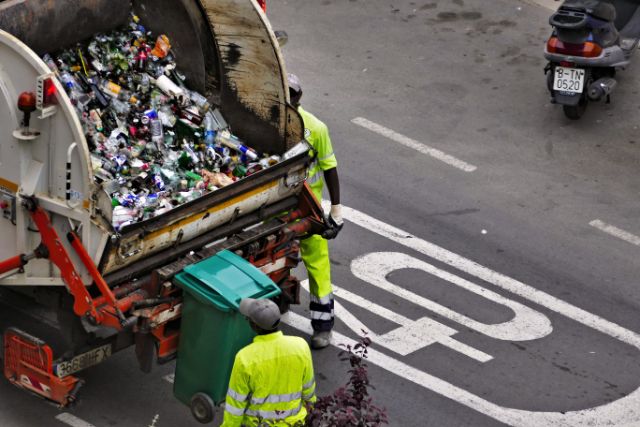 Plastic waste often overwhelms waste management systems, which leads to more waste ending up in the environment.
Plastic waste often overwhelms waste management systems, which leads to more waste ending up in the environment.5. Land and Soil Preservation
It takes hundreds of years for plastic to decompose, which means that once it is introduced into the environment, it remains there for an extended period. This disrupts the natural ecosystem and profoundly impacts its fertility and health, leading to reduced crop yields and increased soil degradation. We can minimize the amount of plastic waste entering our soil, protecting both the environment and the food production system.
THE IMPACT OF REDUCING PLASTIC CONSUMPTION ON BUSINESSES (HOTELS)
Hotels play a vital role in the tourism industry by providing accommodation to millions of travelers worldwide. To contribute to a sustainable future, hotels can reduce plastic dependence and enjoy various benefits, such as:
1. Enhanced Guest Experience
One effective strategy for reducing plastic consumption in hotels is to offer guests sustainable and eco-friendly alternatives to single-use plastics. This can include refillable water bottles, eco-friendly toiletries, biodegradable straws and cloth laundry bags. When hotels provide these options, they can enhance the guest experience and appeal to environmentally conscious travelers who prioritize sustainability.
2. Cost Savings
Hotels can benefit significantly from switching to reusable or recyclable alternatives instead of single-use plastics. Using disposable items may seem more convenient, but the constant need to purchase and restock them can quickly add up to costs. By switching to reusable or recyclable options, hotels can reduce their overall expenses and improve their bottom line.
3. Corporate Social Responsibility (CSR)
Corporate social responsibility has become an increasingly important aspect of modern business practices. It is no longer just about making profits but also about making a positive impact on society and the environment. By actively engaging in sustainable practices, including plastic reduction, hotels showcase their dedication to being environmentally conscious and socially responsible businesses and attract customers and partners who share the same values.
4. Positive Public Image
As more and more people become environmentally conscious, the hospitality industry has started to recognize the importance of adopting sustainable practices. Hotels that implement eco-friendly measures can benefit from a loyal customer base that appreciates their commitment to environmental responsibility. This leads to favorable reviews and an improved brand reputation, which sets them up for long-term success in the industry.
5. Environmental Compliance and Regulations
As environmental regulations continue to tighten, hotels that take proactive steps to reduce their plastic consumption are finding themselves ahead of the curve regarding compliance requirements. By adhering to environmentally friendly policies and practices, hotels can effectively avoid potential fines and penalties while ensuring the long-term sustainability of their operations.
Hotels that incorporate initiatives to reduce plastic consumption can benefit significantly from their efforts. Want to take advantage of these benefits? I'm here, your dedicated plastic-free consultant, to collaborate with you and strategize for a sustainable, more cost-effective future for your hotel.
Book your consultation today!
